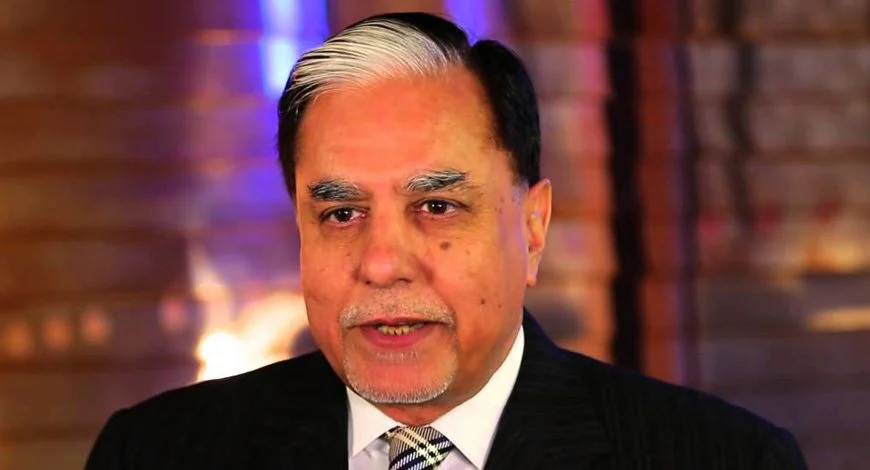
In the ever-evolving world of Indian media and entertainment, few names command attention the way Zee Entertainment Enterprises Limited (ZEEL) does. As one of India’s most recognized content companies, ZEEL has been in the spotlight for years—sometimes for its impressive programming and other times for its turbulent corporate journey. Recently, ZEEL once again found itself at the center of a high-voltage debate, not because of a show or a merger, but due to an important decision made by its promoters—a move that has sharply divided industry watchers, investors, and analysts.
In June 2025, the promoters of ZEEL, led by Subhash Chandra and family, made headlines by increasing their stake in the company. This unexpected move came after a long phase of uncertainty, including a failed merger with Sony Pictures Networks India, several regulatory challenges, and an overall environment of declining trust among institutional investors. The promoter stake, which had fallen below 4%, has now seen a noticeable increase through open market purchases. This action has led to two key questions: Is this a genuine vote of confidence in ZEEL’s future, or is it an effort to regain control amid governance-related doubts?
Understanding the Background: A Tumultuous Journey
ZEEL has witnessed a series of dramatic events over the past few years. From once being India’s undisputed media leader, the company began slipping down the ladder after questions around its financial management and governance practices emerged. The most significant blow came when the highly-anticipated merger with Sony collapsed in early 2024. This merger was expected to rescue ZEEL from its troubled waters, as it would have created one of India’s biggest media conglomerates. However, the deal fell apart amid differences over leadership structure, and disagreements with regulators added more strain.
To make matters worse, SEBI (Securities and Exchange Board of India) imposed restrictions on certain promoter actions, citing alleged financial irregularities and misappropriation of funds. These developments deeply impacted ZEEL’s credibility in the market. Investor confidence plummeted, stock prices wavered, and even loyal shareholders began asking tough questions about the company’s direction.
Promoter Stake Hike: Symbol of Strength or Strategic Move?
When the promoter group recently increased its stake, it came as a surprise. The purchase was made through the open market and was reportedly self-funded, indicating that no outside financial support was involved. On the surface, such a move might be interpreted as a positive sign. After all, why would promoters invest more money into the business unless they believe in its future potential? For some, this appeared to be a turning point—perhaps even the beginning of a recovery plan for ZEEL.
However, others have taken a more cautious view. While promoter stake hikes are often welcomed as signs of commitment, in ZEEL’s case, it also raises several important concerns. Given the company’s history of corporate governance issues, many market experts feel that such a move cannot be viewed in isolation. Without a clear and detailed strategy laid out for the public, this stake hike could be a mere optics exercise designed to stabilize the company’s image in the short term.
A Matter of Timing and Transparency
One of the biggest concerns surrounding the ZEEL promoter stake hike is the timing of the move. It comes just months after ZEEL was facing intense pressure from regulators. Some critics believe this is not a coincidence but a calculated step to present a picture of regained control and confidence. By increasing their stake, the promoters could be attempting to send a message of strength to stakeholders. However, the absence of a public turnaround plan, clear business roadmap, or financial reforms has raised suspicions about the true motive behind the move.
Moreover, investors remember that it was the same promoter group that had earlier pledged large chunks of their stake to raise funds during the company’s financially difficult years. That past behavior, followed by regulatory scrutiny, makes it harder for investors to blindly accept this new development as a completely positive signal.
SEBI’s Role and the Shadow of Regulations
The role of SEBI in this matter cannot be overlooked. In 2024, the regulator had imposed restrictions on the Chandra family for allegedly diverting company funds for personal gains. Though those orders have now been partially relaxed, SEBI continues to monitor ZEEL’s corporate governance practices. Any significant development like a promoter stake hike is likely to attract regulatory attention, especially if not backed by complete transparency and accountability.
If this move turns out to be more of a public relations strategy than a genuine step toward corporate improvement, regulatory backlash may not be far behind. ZEEL, therefore, finds itself walking a tightrope—between wanting to rebuild trust and being closely watched by authorities.
Market Reaction: Between Hope and Hesitation
The market response to the stake hike has been measured. While retail investors showed slight optimism, institutional investors remained largely quiet. The stock experienced a small uptick, but nothing dramatic. Analysts have cautioned against drawing too many conclusions from the stake hike alone. Instead, they are waiting for the company to announce concrete business plans, restructuring moves, or perhaps fresh leadership appointments.
This muted response indicates that while some investors view the stake hike as a symbolic gesture, they do not yet see it as a strong enough reason to change their risk assessment of ZEEL. The trust deficit created over the past few years is not easy to repair, especially in an industry where public image and reputation are as important as financial performance.
What It Means for ZEEL’s Future
The big question remains: What does this promoter stake hike actually mean for ZEEL’s future? If backed by action, this could mark the start of a new chapter for the company. Subhash Chandra and his family could use this opportunity to implement long-overdue reforms, invite independent board members, improve financial disclosures, and possibly re-engage in strategic alliances with other media houses.
On the other hand, if this move is not followed by visible improvements in corporate governance, it could deepen the company’s credibility crisis. Investors today are more aware than ever, and symbolism alone does not drive stock value. In a media landscape that is rapidly shifting towards digital-first models, ZEEL needs more than boardroom adjustments—it needs a bold vision for the future.
Investor Outlook: Proceed With Caution
For existing investors, the best approach at this stage is to stay informed but not overreact. A promoter stake hike is an important signal, but it is not enough to make investment decisions without context. The absence of a transparent, forward-looking plan means that the picture is still incomplete.
New investors considering ZEEL should tread carefully. Until the company offers more clarity about its financial strategies, regulatory compliance, and corporate culture, ZEEL remains a high-risk stock. Financial advisors often recommend diversification in such cases, rather than placing too much faith in a single company’s symbolic actions.
The ZEEL promoter stake hike is not just a corporate action—it is a test of the company’s intentions. It could be the first step toward reviving a troubled brand, or it could simply be an attempt to regain control in turbulent times. Only time, and the company’s future decisions, will reveal the full picture.
As the industry watches closely, one thing is certain: ZEEL’s path forward will be shaped not just by who owns the shares, but by how the company behaves in the public eye. For now, both hope and skepticism surround this development in equal measure.































